Davis Cup: Why competition is loved but needs to change
- Published
- comments
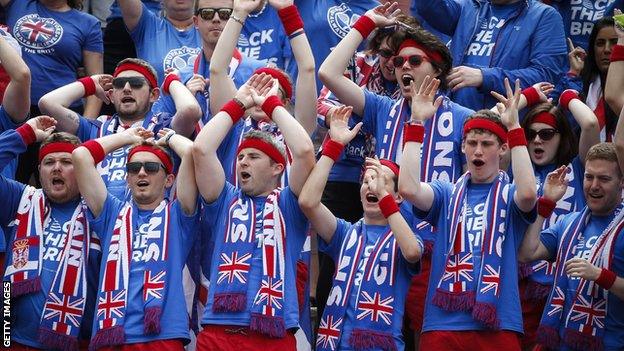
Davis Cup matches are known for their wild atmosphere and passionate fans
Davis Cup: Canada v Great Britain |
|---|
Venue: TD Place Arena, Ottawa Dates: 3-5 Feb |
Coverage: Watch live on BBC TV, Red Button, Connected TV and online, plus follow text updates on the BBC Sport website. |
The absence of Andy Murray and Milos Raonic may not prevent a dramatic weekend from unfolding in snowy Ottawa, but after the thrills of the Australian Open, the Davis Cup is struggling to make its voice heard as it returns for another year.
Great Britain start clear favourites to reach the quarter-finals for the fourth year in a row. While Dan Evans and Kyle Edmund are both ranked in the world's top 50, Canada are unable to field any singles players in the top 100. And they are not alone.
There remains a lot of affection for the 117-year-old competition around the world. Last year's Davis Cup was staged in 58 countries and featured 618 players from 124 different nations.
On a good weekend, the atmosphere is unrivalled in tennis - just ask those lucky enough to be in Glasgow, Birmingham or at the Queen's Club for recent British ties, or in Zagreb in November where Argentina won the cup for the first time over the course of three memorable days.
And yet this week, Serbia's Novak Djokovic is the only member of the world's top 10 in action.
There is once again no Roger Federer or Stan Wawrinka for Switzerland; Rafael Nadal was a late withdrawal from the Spain team; Japan's Kei Nishikori is preferring to play ATP Tour events in Buenos Aires and Rio later in the month; and last year's runners-up, Croatia, will have to do without Marin Cilic. Their number one player for the week is Franko Skugor - their fifth-best player, according to the rankings, and outside the world's top 200.
That is not part of the plan. It is unsustainable.
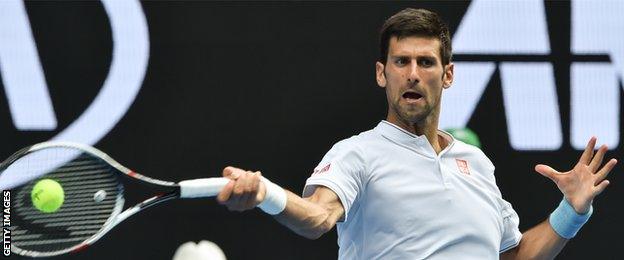
World number two Novak Djokovic is the only player in the top 10 to be playing in any of this weekend's Davis Cup matches across the world
A package of reforms is under discussion, and will be put to the International Tennis Federation's (ITF) member nations during August's AGM in Vietnam. The problem is a lukewarm initial response from players, and an increasing lack of support from the main tours. The ATP and the WTA see the Davis Cup and the women's Fed Cup as competitors, not partners.
Reducing five-set matches to three is on the agenda, and likely to prove popular. However. that in itself is unlikely to encourage the top players to commit to playing up to four weeks of Davis Cup each year, given the first round currently follows the Australian Open and the semi-finals are the week after the US Open.
The ATP's interest is in maximising the strength of its tour: senior figures indicate privately the likelihood of a more confrontational approach in future. If the ITF were to attempt to schedule the Davis Cup in different weeks, they could expect to find ATP events - with ranking points and the potential for far greater financial rewards - running alongside them.
Judy Murray tells Radio 4's Today that David Cup schedule needs an overhaul
The formation of a 16-team Fed Cup World Group has also been proposed by the ITF. This would include a 'final four' event to avoid an extra week being added to the schedule, but there seems little desire within the ITF to budge from four weeks of Davis Cup tennis per year.
These weeks can be hugely valuable in raising revenue and increasing exposure in countries where tennis does not have a huge following. Pakistan, for example, have the chance to host Iran in Islamabad this week, while in Tunis, Tunisia take on Sweden.
Undesirable though it is for the ITF, the number of weeks of World Group tennis will need to be reduced if the Davis Cup is going to thrive. But even that is not as easy as it sounds.
An annual World Cup style tournament - or the biennial staging of the event - would significantly reduce exposure to the competition. And the establishment of a 'final four' event may not be well received by players, given their initial hostility to the ITF's proposal for fixed host cities for the final.
Andy Murray, who was elected to the ATP Player Council last year, addressed that idea during the Australian Open.
"I sat in a room with all of the guys on the player council, and nobody was for the neutral venue," the British world number one explained, wary of a potential lack of atmosphere in non-partisan cities. (The ITF, keen to promote the final much earlier than it currently can, points to away support in excess of 5,000 fans at each of the last three Davis Cup finals).
"There were many things discussed that could change the Davis Cup, we thought for the better," Murray, who inspired Great Britain to victory in the tournament in 2015, added. "None of that's been done yet.
"I do think it needs to change. If the top players aren't playing, the event loses value."
And so to this weekend. Kyle Edmund and Denis Shapovalov may yet be called upon to settle matters in a fifth and final rubber - and I am sure those in attendance will have a hugely enjoyable three days.
It is just unlikely to be a major talking point in either Canada or Britain during the Monday morning commute.
Highlights: Andy Murray wins Davis Cup for GB
- Published2 February 2017
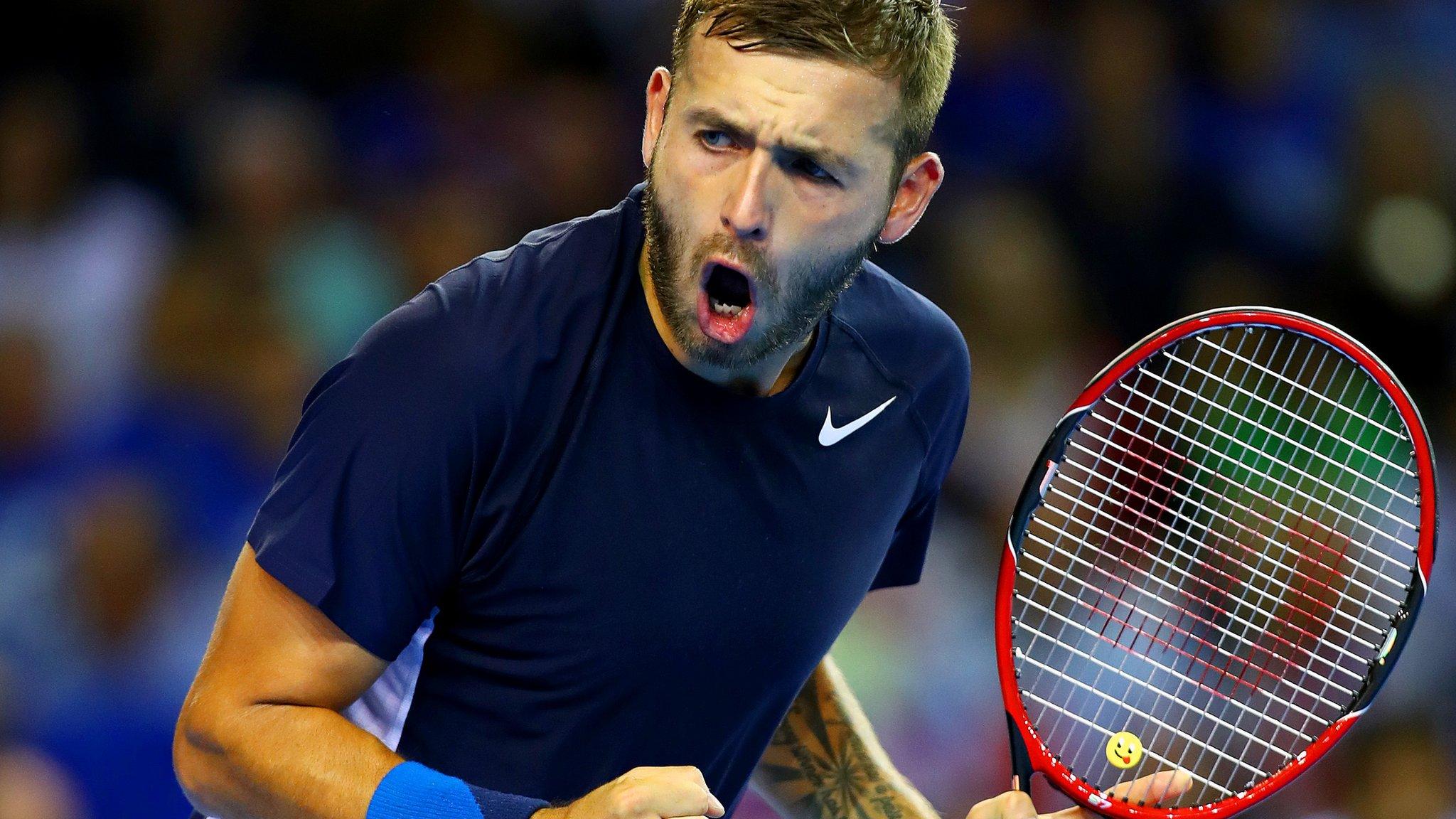
- Published1 February 2017
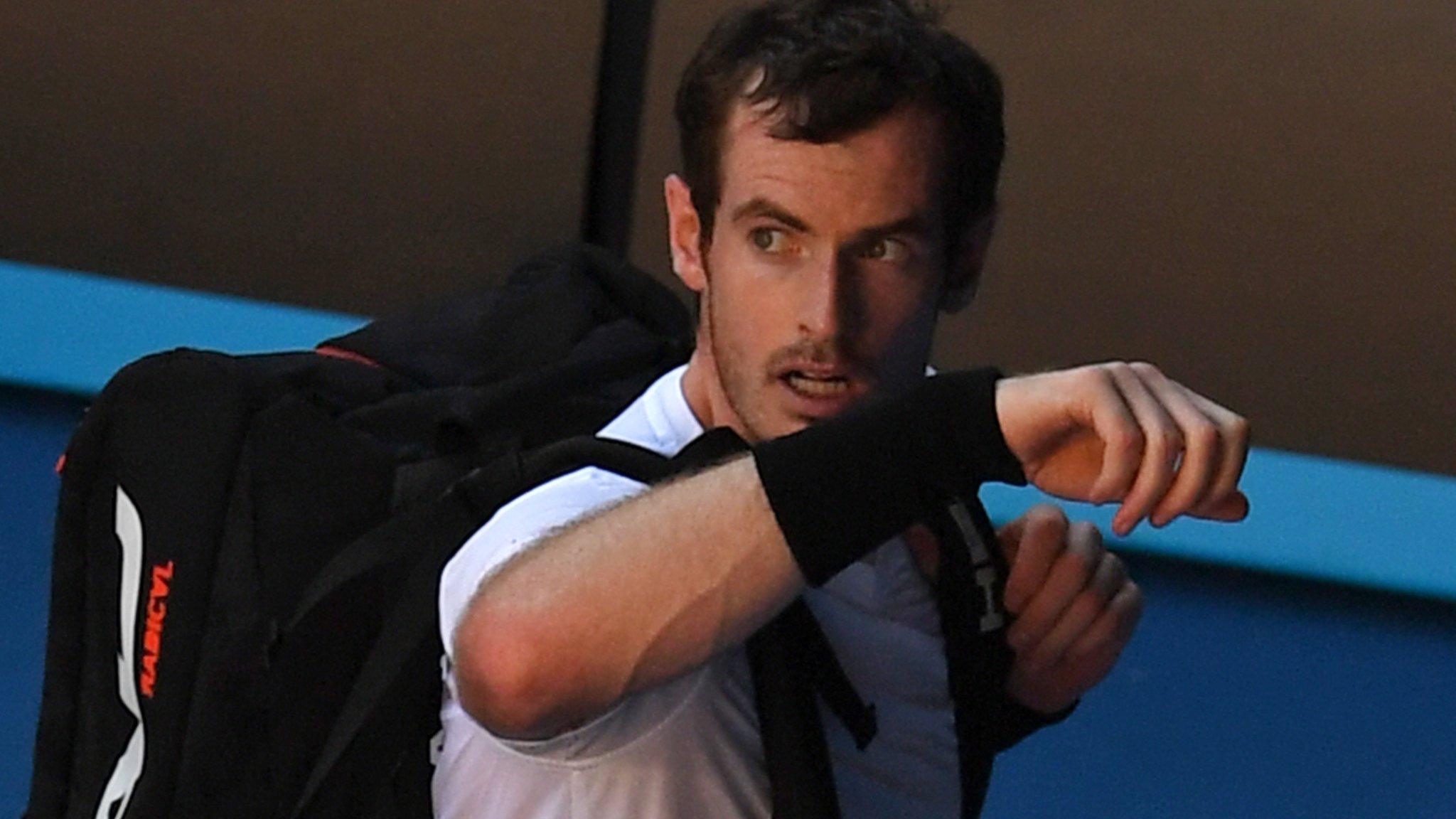
- Published24 June 2018
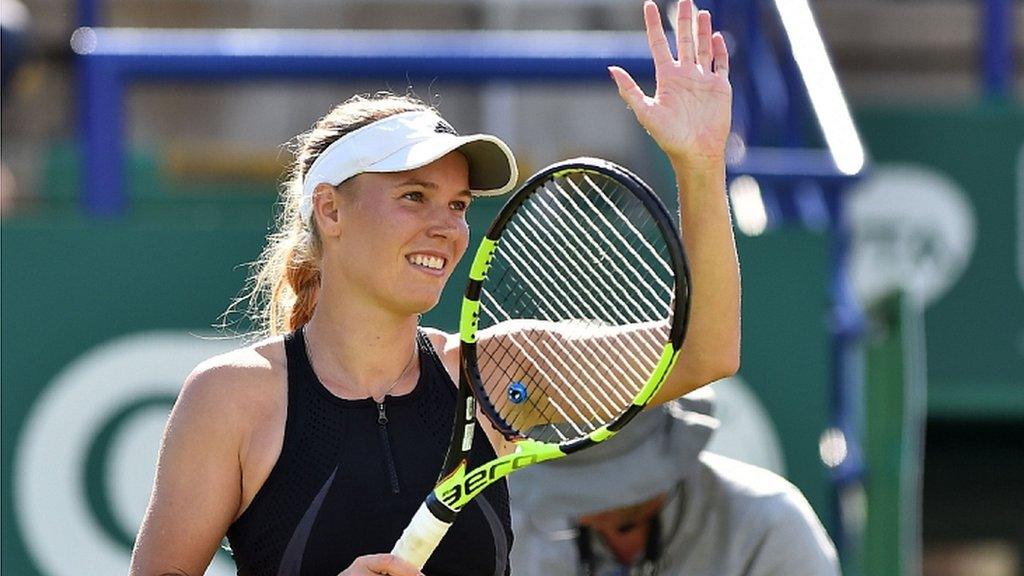
- Published22 January 2017